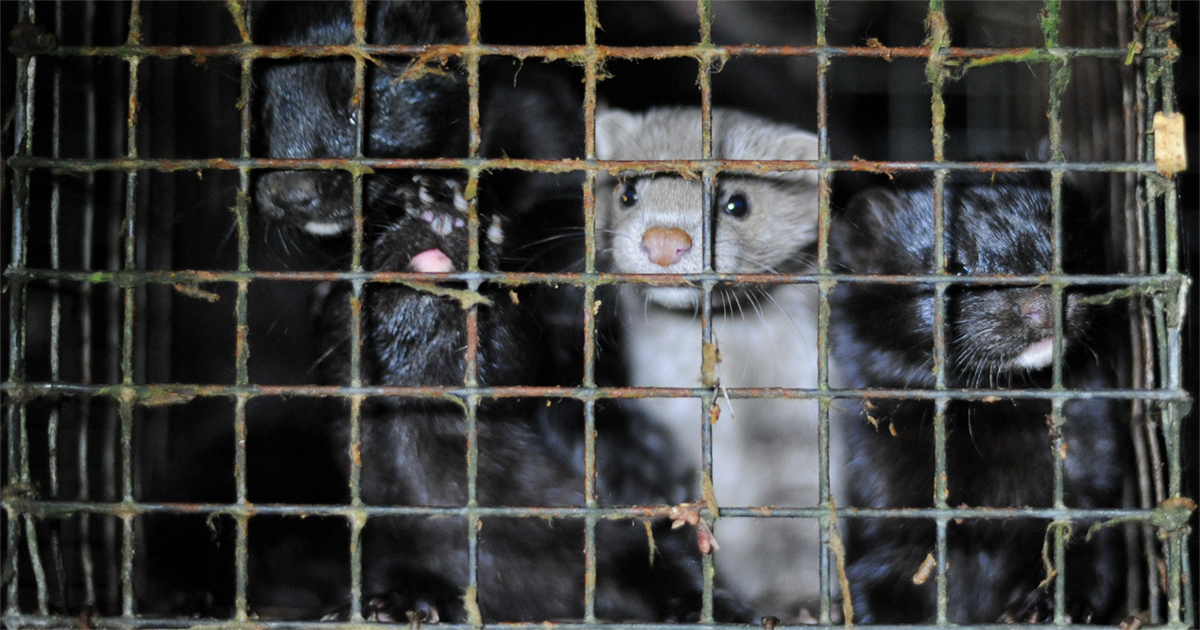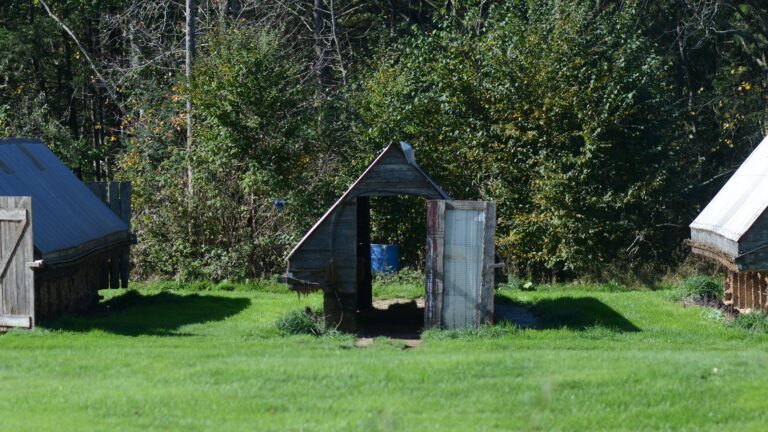
The coronavirus that causes COVID-19 has spread into mink farms across Europe, ravaging an industry and leading to the premature killing of millions of individuals.
Denmark
As many as 15,000,000 mink were ordered to be killed to prevent the spread of coronavirus and a mutated form of it, which researchers warned could hamper vaccine effectiveness. Eleven or twelve people became ill from the mutated version of the virus (this number varies based on news outlet, though it could be related to when articles were published). The exact number of mink to be culled has varied, due to political and legal issues that arose with the original order.
But in the latest news, there are media reports indicating mink have ‘risen’ from their mass graves. Though this has excited some media outlets, the truth is much simpler, and more tragic: “The gases cause the animals to expand and in the worst cases, the mink get pushed out of the ground,” said Jannike Elmegaard of the Danish Veterinary and Food Administratio, in a widely circulated Associated Press article.
The article explains that the soil where some mink carcasses were buried is sandy, making it lighter; had the soil been “clayish”, the phenomenon would likely not have occurred. The carcasses that emerged will be reburied in another site, under guard to keep away scavenging animals.
France
A mutated version of the coronavirus was also found on a farm in France recently, leading to the premature killing of 1,000 individuals. It wasn’t until France began testing at mink farms following the news of a mutated form of the virus in Denmark that it was discovered in the French nation. More testing is underway and the French government has said if they come back positive, all mink on the four farms being watched will be killed.
The four farms are the last remaining in France, and a September 2020 statement from Humane Society International says the government announced a new prohibition on mink farming, with phase out dates by 2025.
Sweden
A CBC article says that Sweden’s health agency has confirmed a number of people who work in the farmed mink industry there have tested positive for the coronavirus. They have not stated how many people are infected, but “authorities are analyzing virus from the infected people and from infected animals to see if there is a link between the strains.”
As of this article’s publication there was no word on culls or bans in Sweden.
The Netherlands
Outbreaks were reported on Dutch mink farms in April 2020, the first nation to identify the virus on the industrial-style mink farms. The Netherlands was eyeing shutting down the industry over welfare concerns by 2024, but that date has reportedly been moved to early 2021.
A study out of The Netherlands also indicated that humans introduced the virus to the captive mink populations, where it evolved, and moved back to humans.
Ireland
An order to kill all 120,000 mink across three fur farms has effectively ended the mink fur trade in Ireland. The order came down as a preventative measure, though all farms are allowed to “harvest” the fur from animals. A previous government in Ireland had vowed to end the fur trade outright, though that bill never passed.
Greece
The coronavirus was detected on at least two fur farms in northern Greece in mid-November, leading to the killing of thousands of individuals. News agencies have reported that there was no sign of a mutated form of the virus.
Spain
Nearly 100,000 mink were killed in response to the presence of coronavirus on farms in the Aragon region of Spain. An Associated Press article from August notes that nine out of 10 animals on a single farm were estimated to have the virus (of a population of over 92,000 mink).
Poland
The coronavirus was found on a mink farm in Poland in late November. Reuters reports that 91 eight of 91 mink tested were positive, and more test results are expected from other regions soon.
Lithuania
EuroNews has reported that a farm in Lithuania has identified the presence of coronavirus, leading to a cull of “22 infected cages of mink”, though the government has made no statement about further killings.
Italy
Coronavirus has been confirmed on Italian fur farms; The Fur-Bearers are working with our international partners to bring you more information.
United States of America
Eleven mink farms across three states have reported outbreaks of the coronavirus, including Wisconsin, Utah and Michigan.
The Salem Statesman Journal reports that approximately 3,400 farmed mink in Wisconsin died and 10,000 farmed mink in Utah died as a result of the virus. There are no reported deaths in Oregon, however, state officials are not testing asymptomatic mink.
Numerous non-profits in the United States have called for changes in mink farming response to the devastation the virus has caused in Europe, as well as news that the mutated form of the COVID-19 causing virus jumped back to people there.
In Oregon, state officials have discussed non-specific “biosecurity” solutions to protect against the spread of the virus, but have not taken action otherwise.
Canada
There are no reported cases of coronavirus on mink farms in Canada, however, responses to inquiries from The Fur-Bearers to provinces with mink farming have not indicated any proactive testing on mink farms or of those who work in mink farms.
As mink in Europe who have tested positive for coronavirus were asymptomatic, it is noteworthy that provincial health and/or agricultural authorities have not discussed ceasing the transport of mink and mink pelts or proactive testing; it is also noteworthy that in some locations where outbreaks have occurred, it wasn’t until after a family member of a mink farm worker showed symptoms that the virus was found, plentifully, on mink farms.
